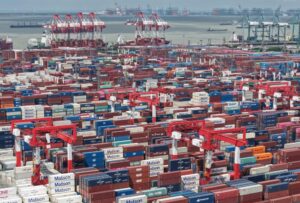KUALA LUMPUR, Aug 22 — Twenty-seven rivers, or four per cent of the 672 major rivers monitored nationwide in 2024, were found to be polluted, said Deputy Prime Minister Datuk Seri Fadillah Yusof.
He said that, based on a report by the Department of Environment (DOE), of the 672 rivers, 475 or 71 per cent were classified as clean, while another 170 or 25 per cent fell into the moderately polluted category.
Fadillah, who is also Minister of Energy Transition and Water Transformation, said that the main pollutant parameters identified included Biochemical Oxygen Demand (BOD), Chemical Oxygen Demand (COD), Ammonia Nitrogen (AN), Total Suspended Solids (TSS) and Dissolved Oxygen (DO).
“Overall, there are no rivers in the country at level five, which indicates severe (pollution), but several still require attention to ensure they reach a safe level.
“We want to ensure that river water is not only (suitable) for people to bathe and enjoy recreational activities but, most importantly, for consumption,” he told reporters after chairing the Special Committee to Address Deterioration of River Water Quality (JKKAS) meeting here today.
Meanwhile, Fadillah said the meeting proposed that state authorities enforce new standards for urban and rural wastewater effluent discharges, based on a study by the National Water Research Institute (NAHRIM).
He said it covered 11 main parameters, including pH, BOD, COD, suspended solids, oil and grease, nitrogen, mercury, colour and solid waste.
Fadillah said the meeting also agreed on the Ministry of Housing and Local Government (KPKT) organising a workshop to outline the standards for drainage water discharge into river basins, involving various agencies, particularly the local authorities responsible for drainage management.
He also suggested that state governments adopt locally developed technology by NAHRIM, including suspended load extractors, oil and grease traps using IoT technology, and the Intriguard system for marking river reserves to prevent external pollution from entering river basins.
“The implementation of this strategic step is expected to significantly improve river water quality, ensure environmental sustainability, safeguard public health, and support the country’s economic development in addressing the challenges of climate change and global pollution,” he said. — Bernama





